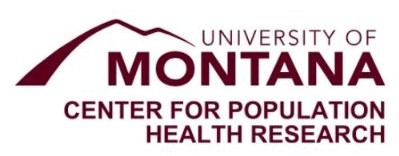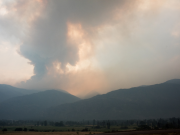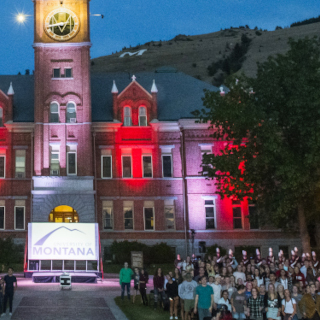Supporting and Advancing Health Research!
The CPHR is designed to support researchers in advancing from state-of-the-art epidemiological and modeling CPHR projects to extramurally-funded intervention research that is informed and developed through CPHR support. To develop a critical mass of investigators in support of the CPHR mission, we bring together faculty engaged in human health research from a variety of disciplines, including epidemiology, mathematical sciences, exposure science, health economics and social and behavioral research.

Latest Projects
-

Wildfires and Arrhythmias: Evaluating Associations and Intervention Strategies
Dr. Ethan Walker - School of Public and Community Health Sciences
Wildfires are a growing public health crisis as they increase in size, intensity, and duration across the United States. There is a critical need for the development and evaluation of intervention strategies that reduce wildfire exposures and improve health outcomes. This project will leverage an ongoing partnership with the International Heart Institute (IHI) in Missoula, Montana to study wildfires and arrhythmias and evaluate an air pollution intervention program among patients with cardiovascular implantable electronic devices (CIEDs).
-

Addressing Perinatal Mood and Anxiety Disorders (PMADs) Through a Doula Intervention
Dr. Jessica Liddell - School of Social Work
Perinatal mood and anxiety disorders (PMADs) are the most common complication of childbirth and are especially prevalent among rural populations who experience heightened negative maternal and child health (MCH) outcomes. The use of doulas, who are non-medically trained birth support professionals, may be one way to address existing healthcare gaps, improve mental health outcomes, and promote maternal health. This research will use community-based research methods to develop and pilot an intervention using doulas to help address PMADs and other MCH needs of rural populations in Montana.
-

Café Move: A Novel Program for Prevention of Age-Related Physical Frailty
Dr. Andrew Kittelson - School of Physical Therapy and Rehabilitation Science
Café Move uses simple yet robust assessments of strength, mobility and balance to enable people to quickly and easily gain insight to their physical function, relative to normative data (accounting for age, height, etc). All of the Café Move assessments can be performed outside of formal healthcare settings, thus promoting autonomy and reducing barriers to access. In this study, we plan to make Café Move available in select independent-living senior communities via three modalities (dine-in, kiosk and delivery). We will conduct a double-baseline cohort study intended to yield the data necessary to calculate within- and between-site variance in the outcome measures of interest (e.g., health barriers, rates of engagement with prevention strategies), which will inform the design of an R01-level trial.
